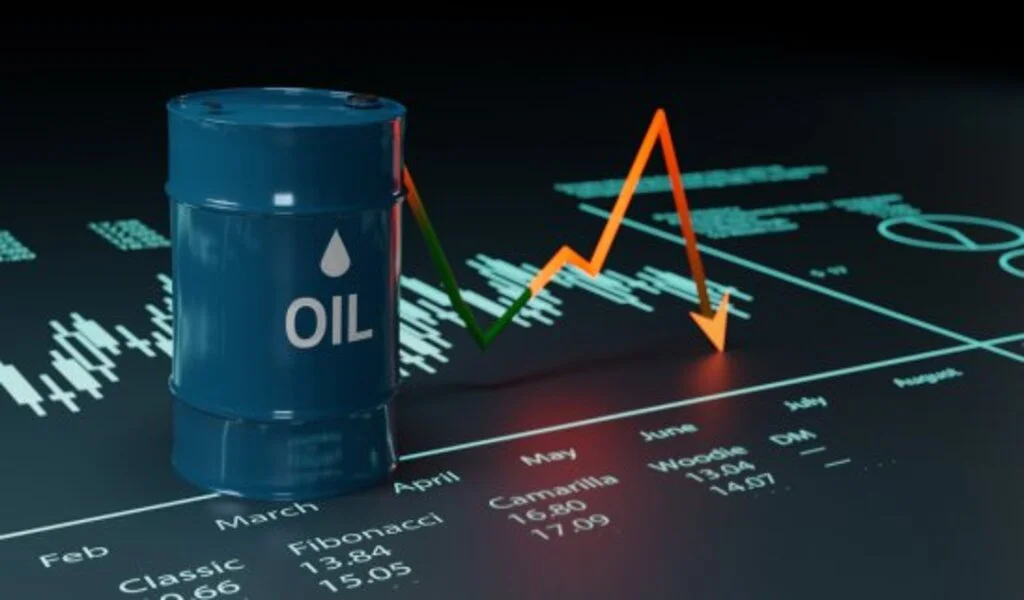Business
Crude Conundrums: Solving Common Challenges in Oil Trading

The global oil industry is a labyrinthine behemoth, driving economies and influencing geopolitics. It’s not just about extracting black gold from the Earth; it’s about understanding and navigating a plethora of challenges that make oil trading as intricate as it is essential.
In this dynamic realm, offering insights and guidance that simplify the complexities of the trade. Engaging with resources like this not only empowers traders with knowledge but also fosters a community where experiences and strategies are shared. Companies engaged in oil trading can overcome obstacles by utilizing the advantages of derivatives.
Understanding the Basics: How Oil Trading Works
There are numerous types of crude oil, but two stand out prominently: Brent and West Texas Intermediate (WTI). Brent typically comes from the North Sea and serves as a global benchmark, while WTI, primarily from the U.S., often sets the standard for America.
In this vast market, players range from the powerful Organization of the Petroleum Exporting Countries (OPEC) to independent producers, refiners, and end consumers. Trading can be immediate, through the spot market, or based on future contracts, which allow buyers and sellers to fix prices for future delivery.
Geopolitical Challenges: Navigating Global Tensions
Geopolitics can send ripples, if not waves, through the oil market. Sanctions on major producers like Iran and Venezuela are prime examples. Traders often find themselves tiptoeing around tensions, making predictions based on potential political shifts, and devising strategies to buffer against geopolitical uncertainties.
Market Volatility: Predicting and Responding to Price Swings
Oil price charts often resemble roller coasters. Factors such as global production levels, demand shifts, natural disasters, and geopolitical events can all send prices soaring or plummeting. Traders employ various tools to hedge against these fluctuations, from diversifying their portfolios to using sophisticated data analytics to predict market trends.
Regulatory Hurdles: Complying with Evolving Policies
Global oil trading doesn’t just wrestle with natural and geopolitical factors; it must also navigate a web of regulations. As the global community becomes increasingly environmentally conscious, new policies emerge, posing challenges for traders. For example, carbon trading, which allows countries and companies to buy and sell allowances for carbon emissions, impacts the profitability and strategy of oil operations.
Technological Innovations: Digital Transformation in Oil Trading
The oil sector, like many industries, has felt the transformative impact of the digital revolution. Blockchain technology is emerging as a beacon for its potential to offer greater transparency and traceability in transactions, acting as a deterrent to fraudulent activities. On the other hand, artificial intelligence and machine learning are revolutionizing the sector by providing deep insights into market dynamics. However, the adoption of these technologies also underscores the imperative for heightened cybersecurity protocols to safeguard the integrity of digital operations.
Environmental Concerns: Balancing Profit and Planet
Historically viewed as a significant environmental culprit, the oil industry now faces mounting demands to minimize its ecological impact. Beyond regulatory compliance, there’s a push for greener extraction and refinement methods. Concurrently, the rise of renewable energy sources signals a shift in the energy landscape, prompting traders to prepare for a diminished reliance on oil in the future.
The Human Element: Nurturing Talent in a Competitive Arena
Even with advanced technologies, the oil trading sector is only as good as its human resources. The industry faces challenges in attracting and retaining talent amidst negative perceptions around oil and environmental concerns. Thus, there’s a growing emphasis on training, ensuring that the next generation of traders is equipped with both technical knowledge and a holistic understanding of the changing landscape.
Future Outlook: Adapting to a Changing Energy Landscape
As the energy landscape shifts towards electric vehicles, solar energy, and wind power, the traditional reliance on oil is anticipated to decrease. However, for those in the oil trade, this change presents an opportunity rather than a threat. Embracing diversification, exploring fresh markets, and championing innovation are essential steps to sustain the relevance and success of oil trading in this evolving scenario.
Conclusion: Overcoming Challenges to Thrive in the Oil Market
In the ever-evolving world of oil trading, traders face persistent challenges, much like the ceaseless flow of oil. Yet, by blending adaptability with foresight and innovative approaches, they can adeptly manage these hurdles. The sector’s progression depends on its capability to harmonize age-old methods with modern strategies, guaranteeing a sustainable fulfillment of global energy demands.
SEE ALSO: Best Buy To Cease Selling Physical Media, Including Video Games And Blu-Rays In 2024

























